策略模式
策略模式
引入问题
商场收银系统:根据物品单价和数量,同时可能还有打折优惠或满减活动,开发收银系统。
【普通代码】
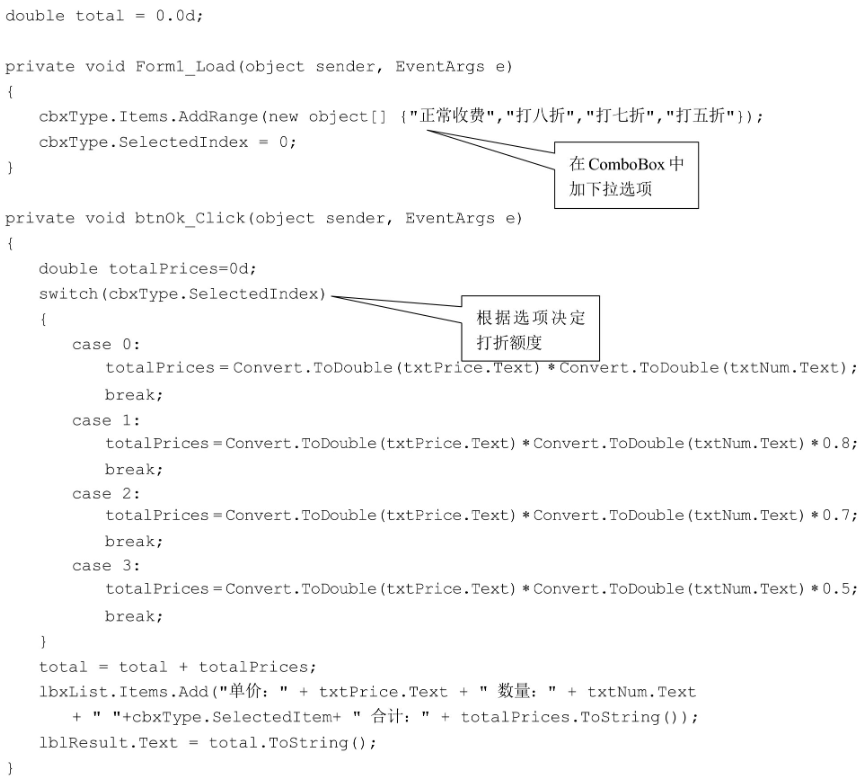
说明:图片来源于大话设计模式,仅供学习使用。
可以看到完全是硬编码,不灵活,可以采用上章学到的工厂模式解耦。
工厂模式代码
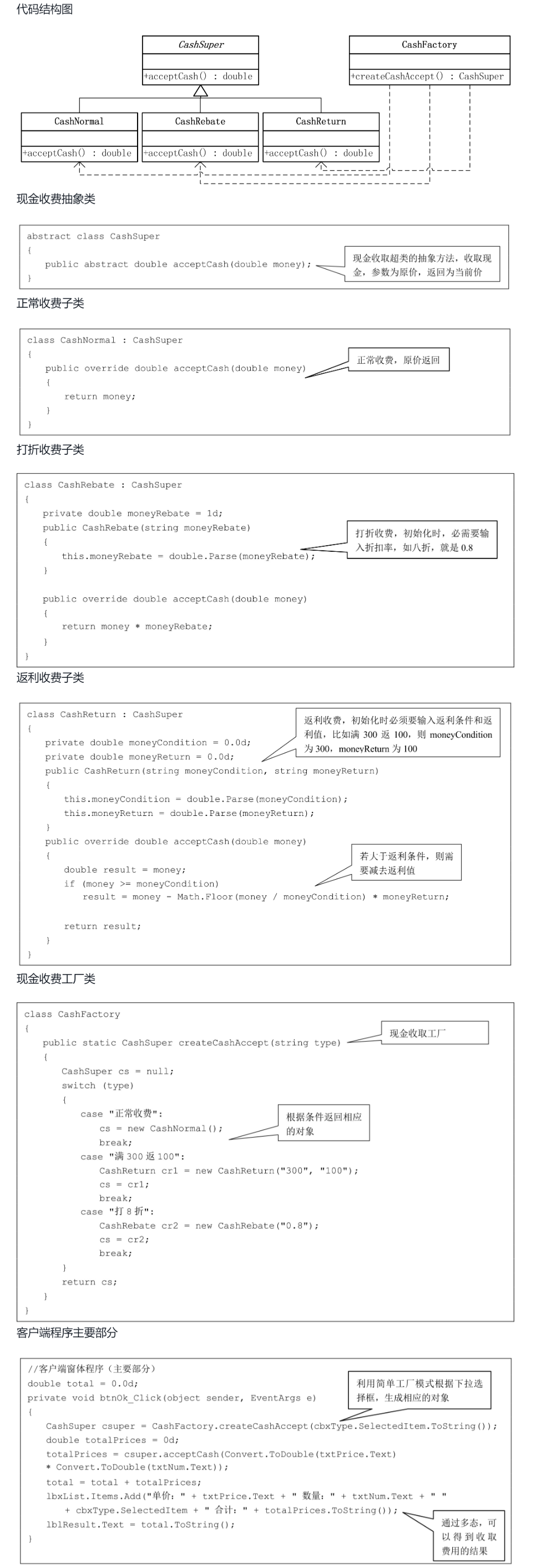
简单工厂模式虽然也能解决这个问题,但这个模式只是解决对象的创建问题,而且由于工厂本身包括了所有的收费方式,商场是可能经常性地更改打折额度和返利额度,每次维护或扩展收费方式都要改动这个工厂,以致代码需重新编译部署,这真的是很糟糕的处理方式,所以用它不是最好的办法。面对算法的时常变动,应该有更好的办法。
==策略模式定义了算法家族,分别封装起来,让它们之间可以互相替换,此模式让算法的变化,不会影响到使用算法的客户。看来商场收银系统应该考虑用策略模式==。
(摘自大话数据结构)
策略模式结构代码
结构大概三部分:
第一部分:需要有个抽象父类,定义算法,然后不同的算法是不同的子类。
第二部分:Context类,构造方法参数为算法的抽象父类,一个执行方法,调用算法抽象父类的方法,供客户端调用执行。
第三部分:客户端代码,在Context的构造方法中,传入不同子类的实现方式,从而调用不同的算法或实现逻辑。
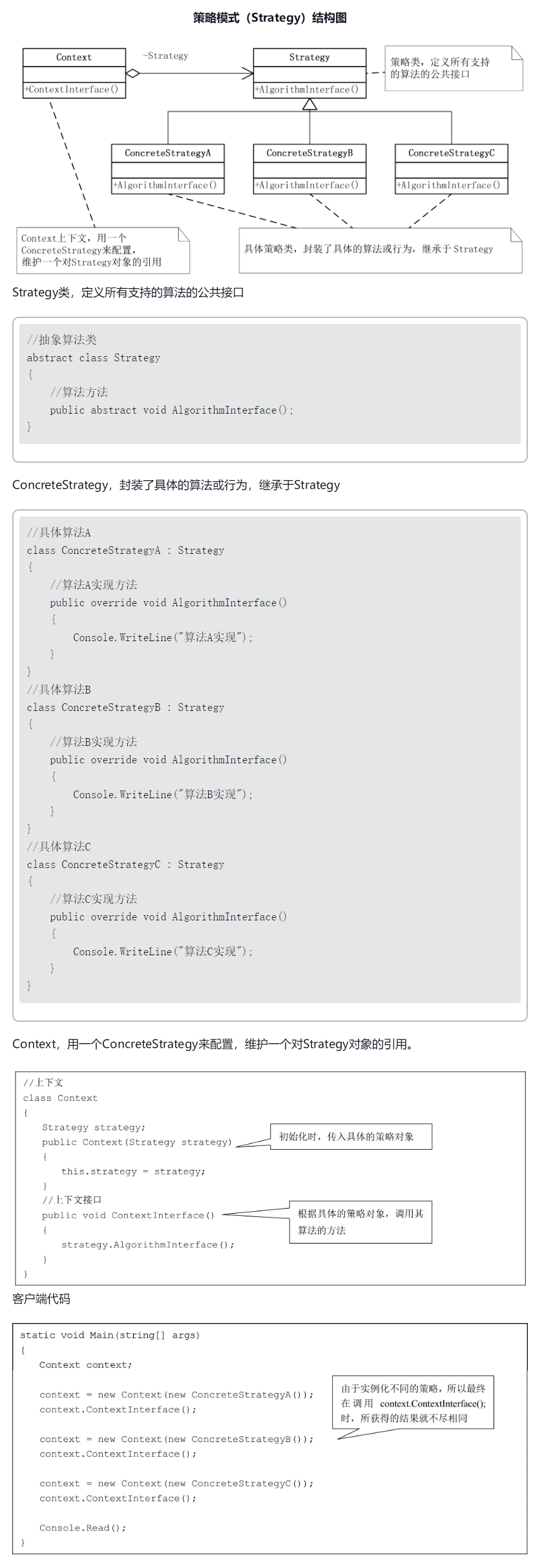
商城系统-策略模式实现
只需要加一个Context类,然后再客户端根据不同的优惠里调用Context的方法,构造时传入不同的优惠实现子类。
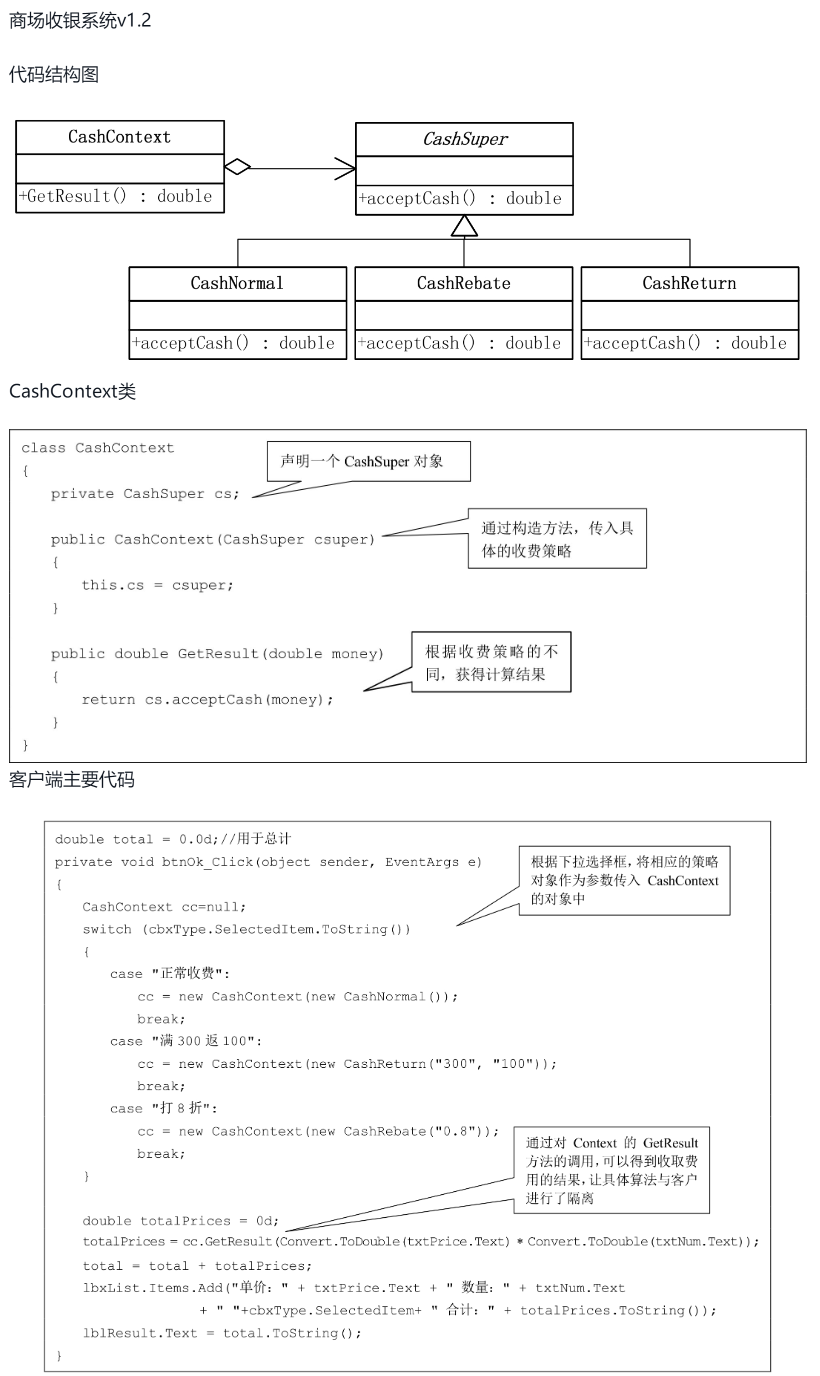
但是!!这样客户端还需要去判断算法,虽然使用了策略模式,但是还是可以继续优化代码。
我们是不是可以结合简单工厂,把算法的判断逻辑,从客户端拿走,改成让工厂决定执行哪个算法。
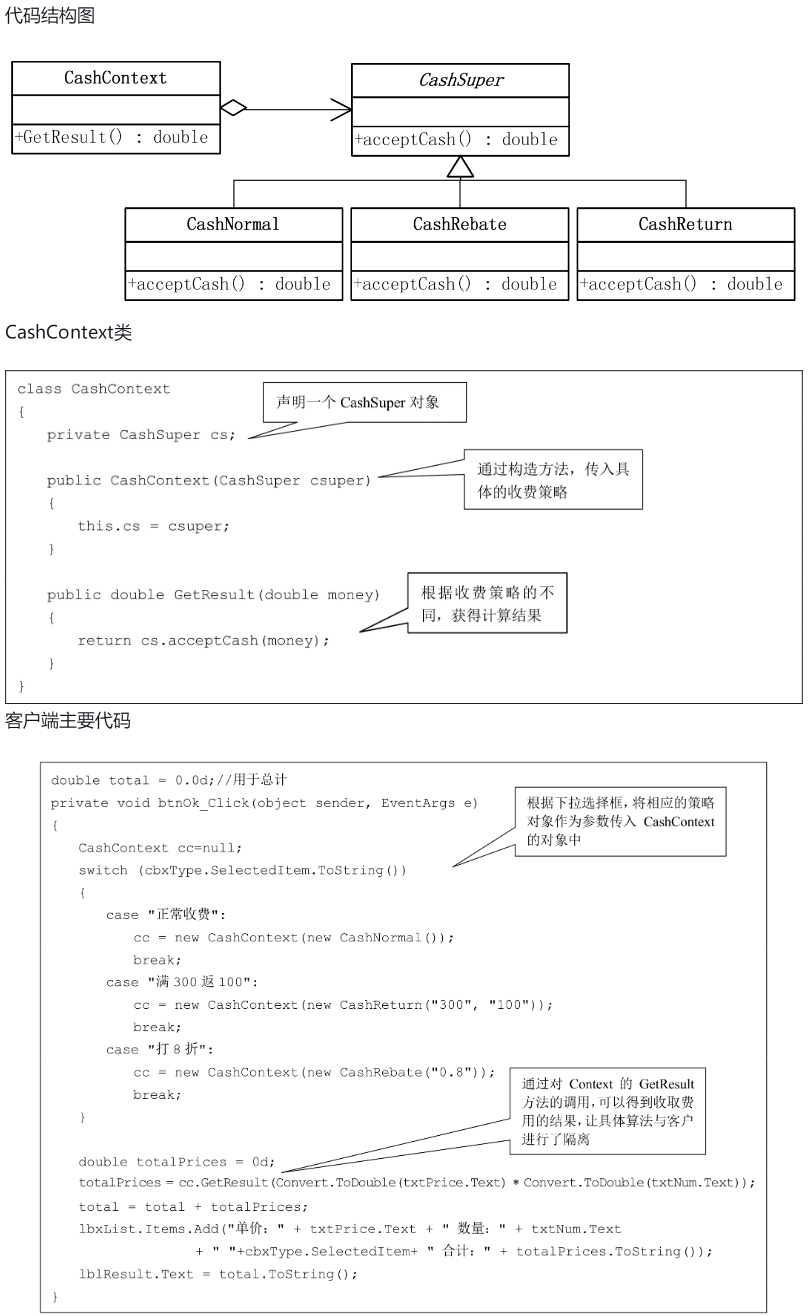
上面这种策略模式,已经挺好的了,但是还可以耦合性降低,在客户端不需要选择优惠类,结合工厂模式修改下Context代码即可
【策略+工厂】
CashStrategy
package pers.keafmd.accumulate.designmode.policymode;
/**
* Keafmd
*
* @ClassName: CashStrategy
* @Description: 收银策略抽象类
* @author: 牛哄哄的柯南
* @date: 2022-06-24 19:50
*/
public abstract class CashStrategy {
public abstract double settlement(double money);
}
DiscountCashStrategy
package pers.keafmd.accumulate.designmode.policymode;
/**
* Keafmd
*
* @ClassName: DiscountCashStrategy
* @Description: 打折策略
* @author: 牛哄哄的柯南
* @date: 2022-06-24 19:57
*/
public class DiscountCashStrategy extends CashStrategy{
private double discount = 1d;
public DiscountCashStrategy(double discount) {
this.discount = discount;
}
@Override
public double settlement(double money) {
return money * discount;
}
}
FullReductionCashStrategy
package pers.keafmd.accumulate.designmode.policymode;
/**
* Keafmd
*
* @ClassName: FullReductionCashStrategy
* @Description: 满减策略
* @author: 牛哄哄的柯南
* @date: 2022-06-24 19:59
*/
public class FullReductionCashStrategy extends CashStrategy{
private double fullDeduction = 0.0d;
private double moneyReturn = 0.0d;
public FullReductionCashStrategy(double fullDeduction, double moneyReturn) {
this.fullDeduction = fullDeduction;
this.moneyReturn = moneyReturn;
}
@Override
public double settlement(double money) {
double res = money;
if(money >=fullDeduction){
res = money - (int)Math.floor(money/fullDeduction) * moneyReturn;
}
return res;
}
}
OriginalPriceCashStrategy
package pers.keafmd.accumulate.designmode.policymode;
/**
* Keafmd
*
* @ClassName: OriginalPriceCashStrategy
* @Description: 原价策略
* @author: 牛哄哄的柯南
* @date: 2022-06-24 19:56
*/
public class OriginalPriceCashStrategy extends CashStrategy{
@Override
public double settlement(double money) {
return money;
}
}
CashContext
package pers.keafmd.accumulate.designmode.policymode;
/**
* Keafmd
*
* @ClassName: CashContext
* @Description: 收银上下文
* @author: 牛哄哄的柯南
* @date: 2022-06-24 20:05
*/
public class CashContext {
CashStrategy cashStrategy;
public void selectPreferential(String strategy){
switch (strategy){
case "原价":
cashStrategy = new OriginalPriceCashStrategy();
break;
case "满300减50":
cashStrategy = new FullReductionCashStrategy(300,50);
break;
case "打八折":
cashStrategy = new DiscountCashStrategy(0.8);
break;
default:
throw new RuntimeException("优惠不合法!");
}
}
public double getPayFee(double money){
return cashStrategy.settlement(money);
}
}
SupermarketClient
package pers.keafmd.accumulate.designmode.policymode;
import java.util.Scanner;
/**
* Keafmd
*
* @ClassName: SupermarketClient
* @Description: 超市客户端
* @author: 牛哄哄的柯南
* @date: 2022-06-24 20:15
*/
public class SupermarketClient {
public static void main(String[] args) {
Scanner sc = new Scanner(System.in);
double lumpSum = 400d;
System.out.println("所有商品优惠前总费用:"+ lumpSum);
System.out.println("请选择优惠:原价,满300减50,打八折");
String preferential = sc.next();
CashContext cc = new CashContext();
cc.selectPreferential(preferential);
System.out.println("优惠后总费用:" + cc.getPayFee(lumpSum));
}
}
效果:
所有商品优惠前总费用:400.0
请选择优惠:原价,满300减50,打八折
打八折
优惠后总费用:320.0
Process finished with exit code 0
- 点赞
- 收藏
- 关注作者


评论(0)